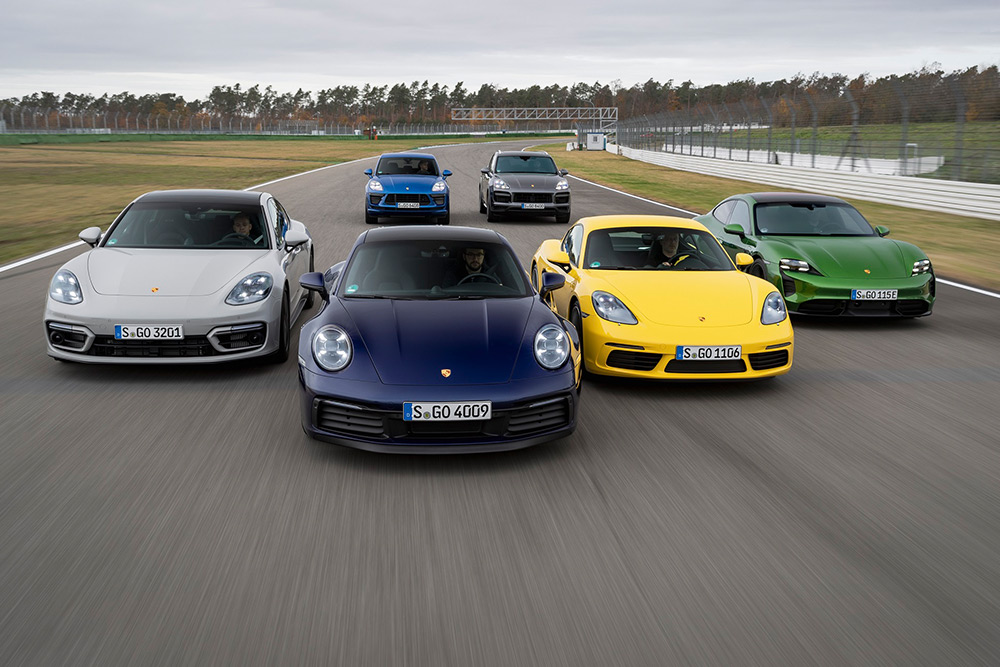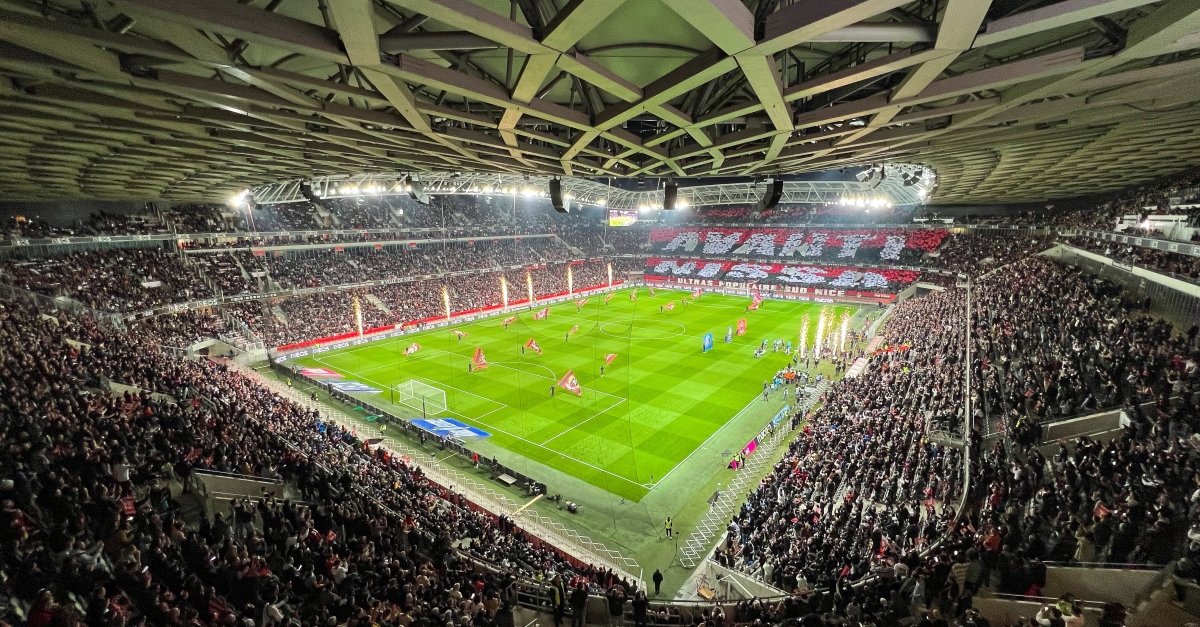BMW, Porsche, And The Complexities Of The Chinese Automotive Landscape

Table of Contents
The Allure and Appeal of German Luxury Brands in China
German engineering has long held a prestigious position globally, and in China, this translates to a strong brand perception for luxury automakers like BMW and Porsche.
Brand Perception and Prestige
BMW and Porsche enjoy exceptionally high brand loyalty in China, largely due to their association with success, status, and German engineering excellence. This perception is meticulously cultivated and deeply ingrained in the Chinese consumer consciousness.
- High brand loyalty: Repeat purchases and strong customer advocacy demonstrate the enduring appeal of these brands.
- Strong brand heritage: Decades of producing high-performance and reliable vehicles have built a reputation that precedes them.
- Association with German engineering excellence: The perception of superior quality, precision, and innovation is a key differentiator.
Target Demographics and Purchasing Power
The Chinese automotive market is fueled by a burgeoning affluent consumer base with significant spending power on luxury goods. This demographic is crucial for BMW and Porsche's success.
- Growing middle class: A rapidly expanding middle class possesses increasing disposable income, creating a larger pool of potential luxury car buyers.
- Increasing disposable income: Higher salaries and economic growth provide the financial capacity for premium vehicle purchases.
- Desire for premium products: Chinese consumers increasingly seek out status symbols, and luxury cars represent the ultimate expression of success and achievement.
Marketing and Brand Building Strategies
BMW and Porsche have employed sophisticated marketing strategies tailored to the Chinese market, resulting in significant brand resonance.
- Digital marketing: Leveraging social media platforms like WeChat and Weibo is critical for reaching the target audience.
- Celebrity endorsements: Partnering with influential Chinese celebrities helps connect with the consumer base on an emotional level.
- Localized campaigns: Adapting marketing messages and campaigns to reflect local cultural nuances enhances relevance.
- Tailored offerings: Developing specific models and features tailored to Chinese consumer preferences demonstrates commitment to the market.
Challenges Faced by BMW and Porsche in the Chinese Market
While the allure is undeniable, BMW and Porsche face significant challenges in the Chinese automotive market.
Intense Domestic Competition
The rise of domestic Chinese car brands like Nio, Xpeng, Li Auto, and BYD presents formidable competition. These brands offer technologically advanced vehicles at competitive price points, challenging the dominance of established players.
- Increased competition from brands like Nio, Xpeng, Li Auto, BYD: These domestic brands are rapidly gaining market share with innovative electric vehicles.
- Competitive pricing strategies: Domestic brands often offer comparable features at lower prices, putting pressure on pricing strategies of luxury brands.
Government Regulations and Policies
Navigating the Chinese government's regulations is crucial for success. Stringent policies impact various aspects of the automotive industry.
- Electric vehicle mandates: The government is pushing for wider adoption of electric vehicles, requiring manufacturers to invest heavily in EV technology.
- Stricter environmental regulations: Meeting increasingly stringent emissions standards is a crucial factor for compliance and market access.
- Import duties and taxes: Import tariffs and taxes increase the cost of imported vehicles, impacting pricing and competitiveness.
Supply Chain Disruptions and Global Economic Factors
Global events impact the automotive industry significantly. BMW and Porsche are not immune to these challenges.
- Impact of COVID-19: The pandemic disrupted supply chains, causing production delays and impacting parts availability.
- Geopolitical tensions: International relations and geopolitical uncertainty can create instability in the market.
- Chip shortages: The global semiconductor shortage has severely impacted production capacity across the industry.
- Fluctuating currency exchange rates: Exchange rate fluctuations influence the profitability of imported vehicles.
Adapting to the Evolving Chinese Automotive Landscape
To maintain a competitive edge, BMW and Porsche must adapt to the ever-changing landscape.
Localization Strategies
Tailoring products and marketing to Chinese preferences is vital. This includes design, features, and messaging.
- Developing China-specific models: Creating vehicles tailored to the local market's needs and preferences is a crucial strategy.
- Incorporating local features: Adding features specifically requested by Chinese consumers enhances the product's appeal.
- Utilizing local suppliers: Sourcing components and parts from domestic suppliers can improve efficiency and reduce costs.
Embracing Electric Vehicles (EVs)
The demand for electric vehicles is skyrocketing in China. BMW and Porsche are investing heavily in this sector.
- Investment in EV technology: Significant investments are being made in research and development of EV technology.
- Development of EV models for the Chinese market: Tailored electric vehicles are being developed to meet specific market needs and preferences.
- Charging infrastructure partnerships: Collaborations with charging infrastructure providers are crucial for customer convenience and adoption.
Digitalization and Technological Innovation
Technology is transforming the automotive industry. Continuous innovation is key to staying ahead.
- Connected car features: Integrating advanced connected car technologies enhances the user experience.
- Autonomous driving technology: Development and implementation of autonomous driving features will be crucial in future competitiveness.
- Online sales and services: Digitalizing sales and service processes improves efficiency and customer convenience.
Conclusion: The Future of BMW, Porsche, and the Chinese Automotive Market
The Chinese automotive market presents both immense opportunities and formidable challenges for luxury brands like BMW and Porsche. Success hinges on understanding and adapting to the evolving consumer preferences, government regulations, and intense competition from domestic brands. Continuous innovation, localization strategies, and a strong commitment to the EV market are paramount. Further research into the Chinese automotive market, the strategies employed by BMW China and Porsche China, and the overall automotive landscape in China is essential for understanding this dynamic industry. Explore case studies of successful luxury brand adaptations within the Chinese automotive market to glean valuable insights.

Featured Posts
-
 Bloodlines Extended Runtime A New Standard For Final Destination
May 04, 2025
Bloodlines Extended Runtime A New Standard For Final Destination
May 04, 2025 -
 Ufc Fight Night Sandhagen Vs Figueiredo A Comprehensive Fight Breakdown And Predictions
May 04, 2025
Ufc Fight Night Sandhagen Vs Figueiredo A Comprehensive Fight Breakdown And Predictions
May 04, 2025 -
 Russell Westbrook Un Atout Majeur Pour Denver Analyse Du Triple Double
May 04, 2025
Russell Westbrook Un Atout Majeur Pour Denver Analyse Du Triple Double
May 04, 2025 -
 Understanding Peter Greens Impact The Fleetwood Mac Song 96 1 The Rocket
May 04, 2025
Understanding Peter Greens Impact The Fleetwood Mac Song 96 1 The Rocket
May 04, 2025 -
 Grand Theft Auto Vi Trailer A Rewatch And Analysis
May 04, 2025
Grand Theft Auto Vi Trailer A Rewatch And Analysis
May 04, 2025
